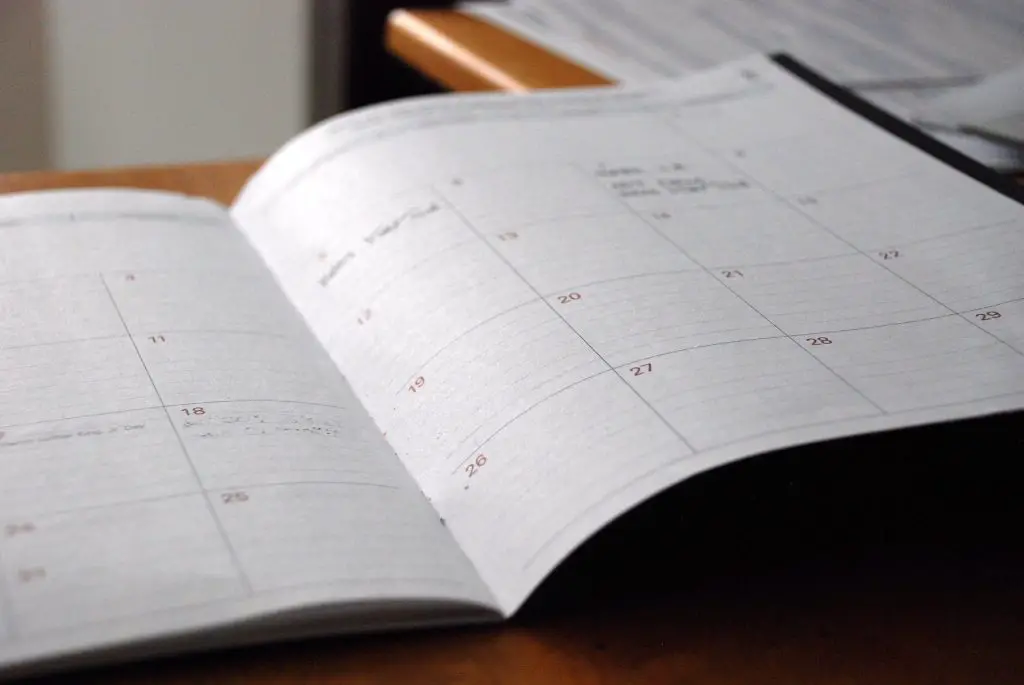Are you ready for your USMLE Step 1? If you’re reading this article, then you’re probably not as prepared as you’d like to be, or maybe someone told you that you needed to be more prepared. Well, we’re going to talk about the things you need to know when it comes to studying and preparing for one of the most essential tests in your medical school career.
With this article, we’re going to talk about some of the supplemental materials that you may want to look into, as well as creating a study schedule and even improving your score. By the time we’re done here, you should have some good USMLE step 1 preparation tips under your belt.
Why is Having a Study Plan for the USMLE Step 1 Exam So Important?
A study plan for the USMLE Step 1 is crucial because it’s going to ensure that you get a better score than you would any other way. Your Step 1 score is, arguably, the most crucial score that you will get on any portion of the USMLE. This is the score that most residency programs will use in determining whether or not you will get a spot in their program and, as a result, you want to have as good of a chance as possible to get the score you need.
Having a study plan ensures that you will continue to stick with your study plans and that you will actually get through all of the materials that you wanted to study. On top of that, it’s going to help you actually work on the materials themselves. When you don’t have a study plan, it’s easy to get overwhelmed by all of the materials that you want to go through, and you could find yourself jumping back and forth without getting any real benefit from your studying.
How to Create an Effective USMLE Step 1 Study Schedule
Creating a useful step 1 study plan means that you should know precisely when you’re taking your test, what you want to study, and that you work your way through it in a methodical way. This isn’t as difficult as it might sound, but let’s take a look at how you can create a useful step 1 study schedule that will actually be possible for you to stick to.
1. Know when you’re taking your Step 1 test.
You can schedule your step 1 exam up to a year in advance, so make sure you set an ideal time frame for when to take the exam (if it’s further out than you can schedule) or schedule it in. This will give you a place to work from when you’re creating a study schedule.
2. Know what you want to study for Step 1.
Determine the study materials that you want to use. Many people choose to use UWorld as their Qbank, and First Aid is a popular study book (we’ll talk more about materials in a later section). Determine the specific guides you want to use and how many questions/pages/chapters are in each.
3. Work backward to set a schedule.
Count out the number of days you have between right now, and the day you plan to take your Step 1 exam. Then, divide the number of chapters/pages/questions of your study materials between those days. That’s how much you need to study in order to get through your materials by test day, and that should be the basis of your new study schedule.
4. Calculate your categories.
Within each of those chapters and questions are ones in different topics that will be on your Step 1 exam. You want to start by studying them somewhat equally until you know which areas you’re going to struggle in. If you already know some that you struggle in, then focus more on those. In general, creating your schedule involves evaluating your strengths and weaknesses.
5. Tweak it to fit you.
If you have areas that you typically only get about 60% or less of the questions, those are topics you should be studying every day. You should pick at least one of these areas to put on your daily schedule. Topics you are getting at least 60%, and up to 80% on you may want to study every couple of days or every three days. Finally, the topics that you get above 80% on consistently, you could study as infrequently as once a week. This focuses your attention where it’s needed most.
6. Update weekly.
Look at how you’re doing on your studying and keep notes on where you’re struggling. Then, update your study schedule each week to reflect where you are and where you need to be. This will keep your study schedule working for you. You may find that some areas you weren’t doing as well in suddenly become stronger and vice versa. Update your study schedule to reflect this.
How Long Should You Study for Step 1?
The general recommendation for studying for step 1 is to devote at least three months to it. While some students are able to take it in less, and some will promote time frames of as little as two weeks, three months gives you enough time to get through all of the materials you want. This will allow you a reasonable amount of time to focus on questions and chapters of your reading without feeling rushed or overwhelmed.
If you’re really looking to take as much time as possible and you really want to take it easy on studying too much each day, you could opt for six months of study time. Some prefer this or even longer because it lets you feel a little more relaxed about your studying. In general, this is the longest that you should use for dedicated study, but you should be doing general review throughout the first two years of your schooling.
Tips on How to Stick to Your Step 1 Study Plan
Are you the type of person who always seems to struggle at sticking to a plan? Maybe you’re a really great planner, and you can create amazing schedules, but you just don’t do well at actually following them. Well, you’re not alone. There are a lot of people and a lot of medical students who have the same type of problem. So, how do you stick to your study plan?
1. Make your Step 1 study plan realistic.
If you set a study plan that just isn’t realistic, you’re not going to stick to it. If you say you’re going to read three chapters and answer 200 questions and go through 50 flashcards every day, you’re going to overwhelm yourself. Instead, set realistic goals that are based on the time you have available (and your own attention span).
2. Take plenty of breaks.
Studying is a marathon, not a sprint. Remember, this test is going to be about three months (or more) out from today. So, schedule your study time and then stick with it, but take a break every so often. Research actually suggests that studying for 52 minutes and then taking 17 minutes off is the best way to go to give your brain time to absorb the information and recharge for the next session.
3. Get an accountability partner.
Even if you don’t want to study with someone (which can also be a good idea), you should at least have someone that you check in with. Give them a copy of your study schedule and take a copy of theirs. Then, every day, send them a message, meet up, or call them and find out if they met their study goal. They should do the same for you. Being accountable to someone else makes you more likely to fulfill your purpose.
Must-Have Supplemental Materials for Your Step 1 Test Prep
Are you ready to pick up some materials to start your study process? You’ve likely heard of some, but you’re not quite sure which ones are going to be the best pick or how they’re going to work for you. Well, there are a number of the best step 1 resources that we recommend, and you should go through these and decide which ones are going to work the best for you. You also may be wondering is UWorld enough for step 1, and in general, the answer is not entirely.
1. UWorld Qbanks.
This is one of the top products that you absolutely should have for studying for each portion of the USMLE. UWorld offers over 2,800 questions as well as explanations for each incorrect answer. It also allows you to track your performance, flag questions, create step 1 flashcards, take notes, create custom exams, and access everything from multiple devices.
2. First Aid.
This is one of the best books for USMLE step 1 and allows you to access information on 1,300 different topics. It offers color photos and illustrations, updated information every year, and mnemonics that are designed to help you retain the information you’re studying. It also has a PDF version available, which makes it easy for you to search out the specific information you want to read more about.
3. Anki.
If you have specific areas that you’re struggling with, this is an excellent way to create your own flashcards. You can add audio clips, pictures, videos, and even scientific markings on your flashcards, plus there’s the ability to sync across any device. On top of that, you’ll be able to customize everything and have over 100,000 cards. Picmonic can also be helpful if you’re more of a visual learner.
These practice tests are the closest you’ll get to the real test, but keep in mind that most people tend to score at least 20 points higher on the actual USMLE than they do on the NBME practice tests. Use these as a supplement and to get an idea of what the test is going to be like rather than a predictor of what your score will be.
5. Boards & Beyond videos.
If you’re a visual learner, these videos can help you understand different concepts. There are over 400 different videos, and they’re related to a range of various topics. You get to choose which video you want to watch at any given time, but overall, there are over 120 hours of education through these.
How to Use Your Step 1 QBanks Effectively
If you have Qbanks or you’re looking to get them, you want to make sure that you’re using them the right way. While many people choose to simply read through the questions and answers, this isn’t really the best way to go. You want to utilize those practice questions to the best possible ability.
1. Answer the question before you read the answers.
If the question you’re looking at is multiple choice (which they generally are), you want to read through the question and try to come up with an answer before you read them. Then, look at the answers and see if yours is there. This will give you a better chance of remembering the information instead of remembering what isn’t the answer.
2. Do your questions first.
Instead of studying the material and using the questions in your Qbanks to quiz yourself after, focus on taking the questions and then studying the areas that you’re not as strong in. This is going to help you focus on the areas you need help in and skip over the areas that you’re already doing well with.
3. Use more than one Qbank for your Step 1 prep.
Don’t get caught up in just UWorld as the only Qbank that you use. It’s going to make you think and work hard, and that’s generally not how you want to start out your studying. Instead, look for another Qbank to start with, such as Kaplan or Rx, and use that as secondary practice.
4. Read why it’s wrong.
If you get a question wrong, your question bank will tell you why that’s the wrong answer. Read through the question again and then read the answer you chose and why it’s wrong. Then, read through the correct answer and why it’s right. Don’t just assume that it’s wrong, and that’s enough. You need to know why so you can see why you made the mistake.
Tips on How to Study for Step 1 During Second Year
Are you ready to get started on actual studying for the USMLE instead of just your general studying? Well, if it’s getting into your second year and you’re wondering how do you study for step 1 during the second year, then these are the things you really need to be working on in order to pass your Step 1 exam.
1. Find the right materials for Step 1 studying.
Look at the list of critical supplemental materials that we’ve compiled and choose the ones that are the most effective for you. Having the right study materials is essential to learn the correct information and get a good score, so start by finding something you can actually use.
2. Study along with your class.
While you’re learning in class, make sure you’re studying the material. Read along in First Aid to learn more about the different topics that you’re working on or work on study questions alongside that section of the class. This will help you keep the information top of mind and also reinforce what you’re already learning.
3. Use a study group.
A study group for Step 1 can help you to focus on the areas where you’re struggling. Chances are there’s someone in the group with a better understanding than you on some topics. Use that to your advantage and get their advice and tips on how to learn that topic. Then, share your advice on topics that you do well in.
4. Study in groups of Step 1 topics.
This means looking at a specific topic and studying everything you can about it. So, if you’re looking at diabetes, consider the presenting symptoms, the possible side effects, the medications prescribed, and the potential outcomes. Look at an overall picture of the topic rather than only studying one aspect at a time or attempting to study medications for all presenting complaints at once.
Tips on How to Increase Your Step 1 Scores Fast
If you’re struggling along and you’re not quite sure you’re going to get the score that you want from your USMLE, it’s a good idea to take a look at these tips. There are a few things that are going to help you get a little bit better score than you might have thought. And each one is going to be a simple aspect of the test.
1. Focus your study on micro and pharm.
These two areas are easy if you know what you’re doing, but if you’re just looking at them for the first time, they’re going to trip you up. Studying each of these will give you a leg up over most of the other students taking the exam. It’s also going to potentially increase your score by 20 points or more, just knowing these topics.
2. Focus on questions individually.
Some of the questions on the exam are meant to be extremely difficult. Some of them are designed to trip you up. Don’t let that ruin how you do on the rest of your questions. When you’re practicing and even in the actual exam, answer a question and then let it go. Whether it was easy or hard, it’s not relevant anymore. Instead, move on to the next question with an open mind, and you could increase your score by as much as 30 points.
3. Get enough sleep.
Sleeping well is going to be crucial to getting a good score. If you study and study and don’t give yourself time to rest and get enough sleep each night (most doctors recommend at least 8 hours), you’ll wear yourself out. That can drop your score by a whole lot more than cramming an extra hour of study in will increase it. It’s not worth it. Raise your score by getting enough sleep and being well-rested when you study and when you take the exam.
4. Study your strong areas.
It can be tempting to ignore the areas you’re secure in, but that’s not a good idea. You can increase your score by studying these areas as well because there’s likely something within them that you don’t already know. Since you are strong here, however, you’re more likely to remember additional details that you find through studying, and that can help you by a few more points.
5. Focus on how topics interact.
You’ll need to show how different sciences integrate together throughout your exam. If you focus on this while you’re studying, you’ll be able to easily weave various sciences together and show how they interact or work together. This is going to give you a benefit in the actual test-taking process.
6. Take a Step 1 practice exam before you start.
Take an NBME practice exam before you begin studying to get a baseline for where you’re at and what you already know. The scores aren’t reflective of actual scores on the exam, but you’ll be able to judge your improvement from the beginning to the end based on comparing scores for this test.
General USMLE Step 1 Tips and Tricks
When it comes down to it, there are a few general tips and tricks that you should know about studying for this exam. These are some essential USMLE Step 1 preparation tips that are going to help you do well on this and other exams, including the other stages of the USMLE.
1. Memorize the vocabulary.
This is the only part that you want to actually memorize because the vocabulary is going to be present in any of the USMLE Step exams. You need to know what different terms mean and how they can and should be used when discussing different concepts. Mnemonics are a great way to remember some of these terms, as are associations.
2. Know the central concepts tested on Step 1.
Each area of medicine has fundamental concepts, and this is another area where you should know the concept but also know how to explain it to someone. Don’t just regurgitate what the definition is. Instead, know how to discuss how the topic actually works in practice, how it links to other topics, and what it would mean.
3. Understand how to apply concepts.
You need to know how to apply each of the concepts to clinical situations. This is what is going to be presented on your exam, and knowing how to reason out the applications and how to present them is going to be a crucial aspect of the process.
4. Look for different types of resources.
If you’re a visual learner, then studying with videos is likely the best way to go. On the other hand, if you learn best by reading, then you may want to skip the videos and focus on review books. Look for the type of review materials that you can learn best from and stick with them.
5. Use your Step 1 practice exams.
Look for practice exams like NBME and use them to get a good idea of what the questions on your actually Step 1 exam are going to look like. Keep in mind that NBME isn’t an accurate predictor of what your final score is going to look like, but it is an excellent way to get to know what the test is going to look like.
More Advice from Past Medical School Students on How to Study for Step 1
When it comes to advice for your USMLE, the best place to get it is from people who have actually been there and done that. So, what do past medical school students have to say about preparing for the Step 1 exam?
1. Start working through UWorld early.
Don’t wait until you get into your dedicated period to start studying this. It can actually be a significant benefit long before that. You’ll also be able to work through more slowly without feeling like you’re cramming.
2. Get rid of other responsibilities.
If you have other things that need to be done, such as presenting your research or working on a side project, get those wrapped up before you get into your dedicated study period. You don’t want to be distracted by other obligations.
3. Watch who you study with.
Studying with someone else can get stressful and even heated. The best thing you can do is try to keep things relaxed and casual. But make sure you warn your study partner (especially if they’re not also a medical student) and don’t let either of you take things too personally.
4. Review during classes.
Instead of going back through all of the material in year two, when you’re starting to prepare for the exam, take the time to do some studying and review throughout the first two years of your schooling so that you have less to go back and try to remember or relearn.
5. Trust yourself.
Don’t get too wrapped up in what everyone else is doing or what you think they’re doing. Instead, focus on yourself and how you feel about the things you’re studying and how well you know them. It doesn’t matter how anyone else does on their USMLE Step 1. It only matters how well you do, and that depends on you doing things that work for you, not them.
6. Take some time with friends.
It can be easy to get overwhelmed when you’re studying for the USMLE and to let everything else fall by the wayside. Instead, schedule in time to spend with people you want to see and get out and do something fun. It will help you maintain your relationships, and it’s going to give you a sense of community, belonging, and just plain fun. Not to mention, it gives you time to relax and recharge.
Wrapping Things Up: How to Study for USMLE Step 1
When it comes to studying for USMLE Step 1, the most important thing you can do is focus. Set a good study schedule that’s designed to work for you and then stick with it. Even still, don’t be afraid to tweak some things along the way and make changes as needed. Your study schedule needs to reflect on what you actually need and how you’re going to learn. With the right materials, you’ll be well on your way to the score that you need to get into the residency program of your choice.
If you liked this post, you’re in luck! We cover how to study for other USMLE Step exams as well:
We also give a ton of free medical school study tips on our site that you can check out here.






















